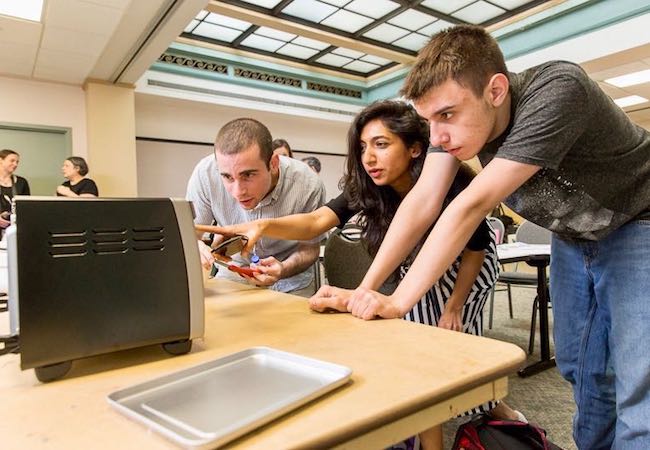Turning an idea into a business that improves education
May 1, 2019
John Gamba explains how teachers can turn an idea for improving education into a business.
There are issues in education that can be solved by changing a lesson plan or policy. But other problems require innovators to create something new — a business or a nonprofit — to develop a solution and introduce it to the education marketplace.
Some of the startups having the biggest impact on education were created by teachers and school leaders. Educators are experts, and we’d benefit if more of these experts helped to create the tools that school systems are buying.
Over more than 20 years, John Gamba founded or co-founded a series of education companies, including the company behind Blackboard Connect, which was built exclusively for K-12 educators.
Now as Director of Innovative Programs and Entrepreneur in Residence at Catalyst @ Penn GSE, Gamba is helping entrepreneurs hone their ideas and put academic research into practice.
Curious about an idea you have? Here are the first steps for turning it into a product or service that could benefit your fellow educators:
You can be an entrepreneur
Most educators think of themselves as public servants, not businesspeople. But these labels only define us if we let them.
Teachers and school leaders have to innovate to solve problems every day. They will try a new approach that is specific, meets a defined need, and is based on a combination of their experience and research. Then they refine this new approach until it works. This iterative process would feel familiar at any startup company.
What’s more, education is not like other markets. To make a difference, the team behind an education product really needs to understand how kids learn. This is why we need more educators to bring their earned wisdom to education ventures.
Define the problem
The first goal of successful companies isn't selling a product. It's solving a problem. What problem would you try to solve? The more specifically you can define the problem, the better you will be able to tailor your idea and nascent venture to solving it.
For example, the team behind MentorPro — winners of the 2018 Milken-Penn GSE Education Business Plan Competition — found that teachers weren’t getting enough support from professional development sessions to create consistent improvement. They set about creating a mobile platform that connects novice teachers to mentors and fills in gaps within the PD cycle. Every feature in their app was designed to address their problem.
Think about your school
How does your idea align to the pain points of your institution? Or, if you envision something like a personalized app, a potential end-user client like a parent?
Keep Learning Catalyst @ Penn GSE offers intensive bootcamps to take education entrepreneurs from initial idea through to early stage startup. Each session features Penn GSE experts and experienced entrepreneurs offering first-hand advice.
How would you measure outcomes and prove the efficacy of your products or services?
Be honest with yourself here. If the idea wouldn’t work in your school — the place you know best — it would need even more revisions before it could work elsewhere.
Ask around
Confident that you have defined a problem and have a solution that would address it? Now it’s time to see if other educators agree.
Do teachers in your building think your idea would work in practice like you do? What about educators in another district? What about educators in a district with different demographics facing different challenges than yours?
Listen critically to what these people have to say. Push them to elaborate on potential weaknesses that you hadn’t considered. Think about how you might modify your idea to meet these concerns. Don’t be afraid to pivot — it’s part of the process.
At this point, if you still believe your idea can make an impact, you are ready to begin building a plan for your business or nonprofit.
Create a business plan
Never written a business plan? Don’t even know what one looks like?
Don’t panic. And don’t let this hurdle, where the process starts to become real, keep you and your idea on the sidelines.
I like to use Lean Canvas, a 1-page business plan template that will build on the work you have already done. This is when you can start to think about who your customers might be, how you would reach them, what it would cost to create your product, and what you might charge.
It will spur you to consider the team you might need to assemble. For example, maybe you have an idea for an app, but need to partner with a coder who specializes in mobile app development.
A business plan is a blueprint. It will drive the next stage of development, from research, to prototyping, to product trials to sustainable growth.
If you continue to work and let your idea evolve, you can solve that problem for a wide range of educators.
John Gamba is Director of Innovative Programs and Entrepreneur in Residence at Catalyst @ Penn GSE.

